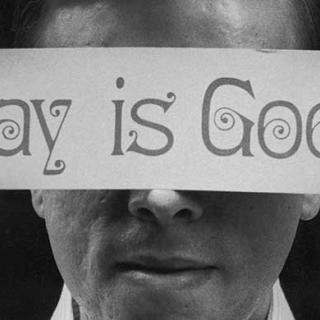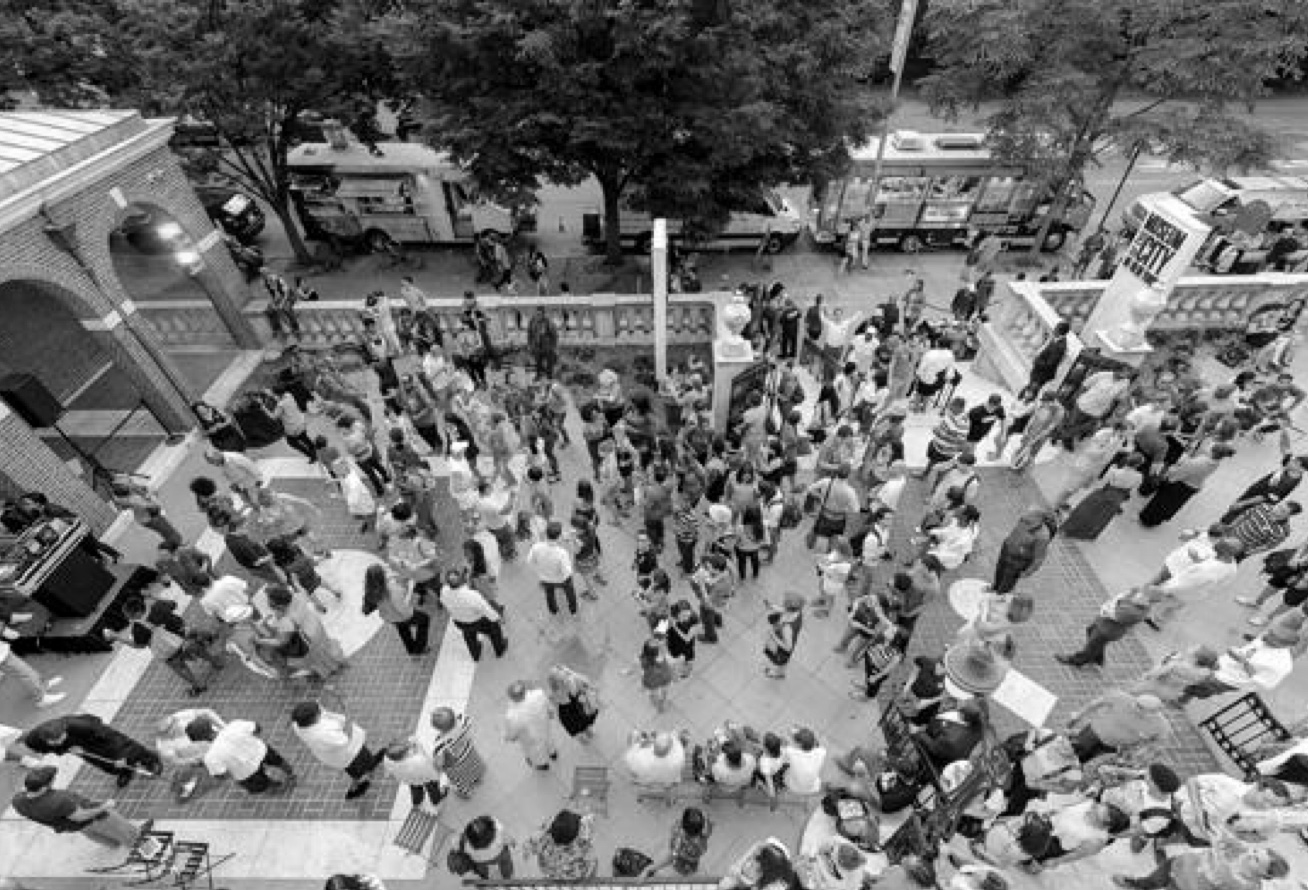LGBTQ+ Rights
Civil Rights for Gays and Lesbians
1969-2011
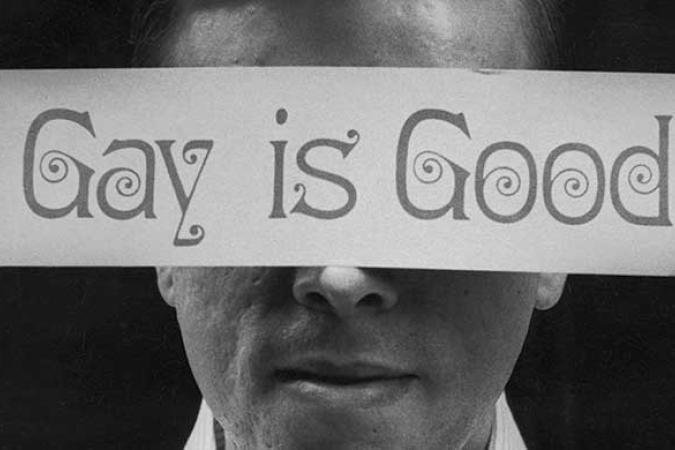
Back to Exhibitions
In the early hours of June 28, 1969, police raided the Stonewall Inn—an unlicensed club popular among a racially diverse mix of gay, lesbian, and transgender New Yorkers. The state routinely denied liquor licenses to bars that catered to gay patrons, which led to gatherings in unlicensed establishments. The Stonewall raid sparked three days of protests on the streets of Greenwich Village. Advocates for gay rights had been active in the city for decades, but the Stonewall uprising ushered in a new mass movement.
Following Stonewall, New York’s gay activist groups multiplied and diversified. The Gay Liberation Front, Gay Activists Alliance, Radicalesbians, and Street Transvestite Action Revolutionaries organized to protest injustice, create social service organizations, and change perceptions about sexuality and gender. They used marches, discussion groups, and new tactics like the “zap”—intentionally confronting officials at public events for media attention.
In the 1980s, AIDS activists used similar strategies to fight for health care and confront government inaction. Groups such as the Gay Men’s Health Crisis (GMHC) campaigned for public awareness, safe sex education, medical care, and government funding for AIDS research. Impatient with the lack of government action, activists founded the AIDS Coalition to Unleash Power (ACT UP), which used confrontational demonstrations and bold graphics to capture attention.
LGBT activism has continued to evolve as New Yorkers have worked to pass anti-discrimination laws, successfully legalized same-sex marriage in 2011, and called for the rights of transgender people and queer people of color.
Meet the Activists
Dick Leitsch
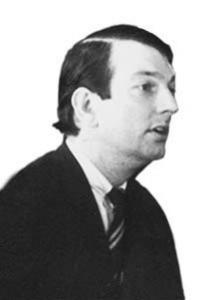
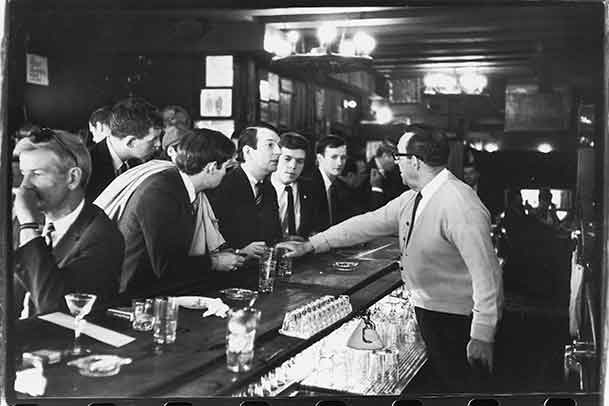
Dick Leitsch
Dick Leitsch, originally from Kentucky, became one of the leaders of the Mattachine Society in New York. Leitsch planned the “sip-in” protest at Julius’ bar in the West Village in 1966, when activists successfully challenged the ban on serving liquor to openly gay patrons in New York State. Here Leitsch sits with fellow activists Craig Rodwell and Randy Wicker.
Image Info: Fred W. McDarrah, April 21, 1966, Courtesy Getty Images.
Martha Shelley
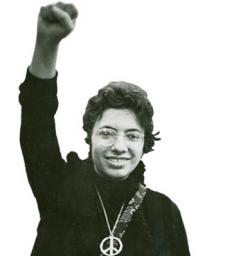
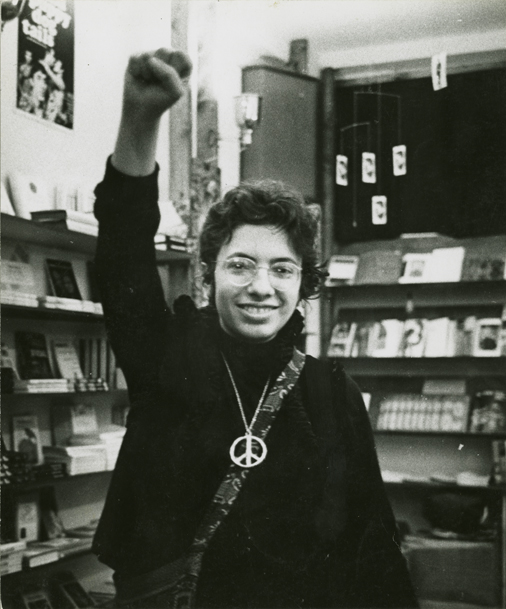
Martha Shelley
A Brooklyn native radicalized by the civil rights and antiwar movements, Martha Shelley helped found the Gay Liberation Front and Radicalesbians in New York. Lesbians often faced the challenge of defining their identity within the larger gay rights and feminist movements. Shelley participated in the Radicalesbians protest at the Second Congress to Unite Women urging the feminist movement to address lesbian issues.
Image Info: Diana Davies, 1969, Manuscripts and Archives Division, The New York Public Library.
Sylvia Rivera
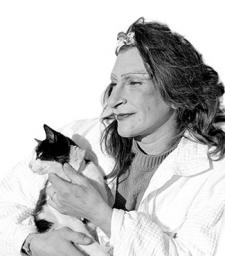
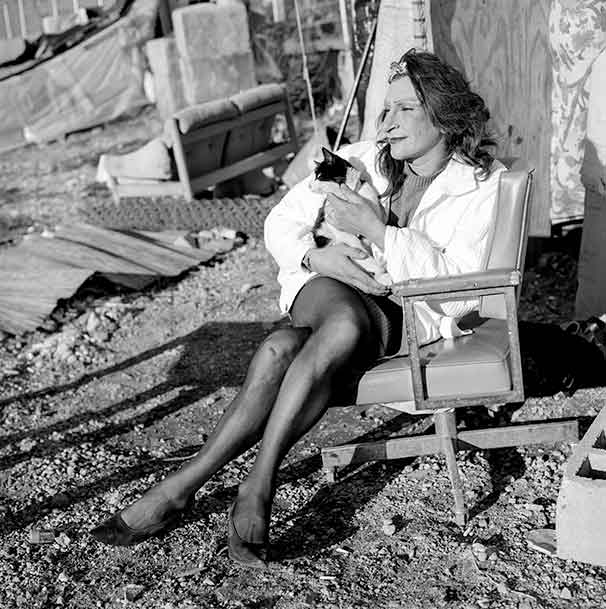
Sylvia Rivera
Sylvia Rivera was a pioneering activist for the rights of LGBT people who inspired subsequent generations of activism. Rivera started Street Transvestite Action Revolutionaries, which assisted transgender homeless youth and people of color, with Marsha P. Johnson in 1970. A veteran of Stonewall, Rivera also participated in the Gay Liberation Front and the Young Lords Party.
Image Info: Valerie Schaff, ca. 2000, Courtesy of the photographer.
Craig Rodwell
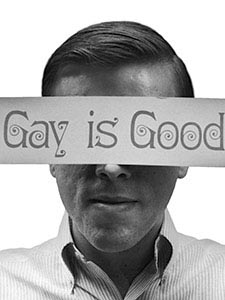
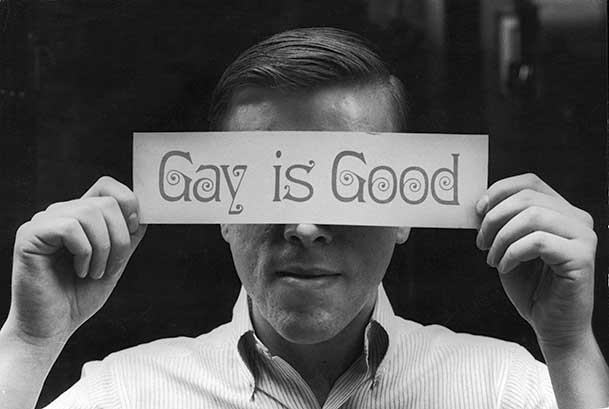
Craig Rodwell
Craig Rodwell founded the Oscar Wilde Memorial Bookstore, the first bookstore devoted to LGBT authors, on Mercer Street in 1967. He participated in the Stonewall uprising and organized the city’s first Gay Pride march on the anniversary of the event.
Image Info: Fred W. McDarrah, 1969, Courtesy Getty Images.
Martin Robinson

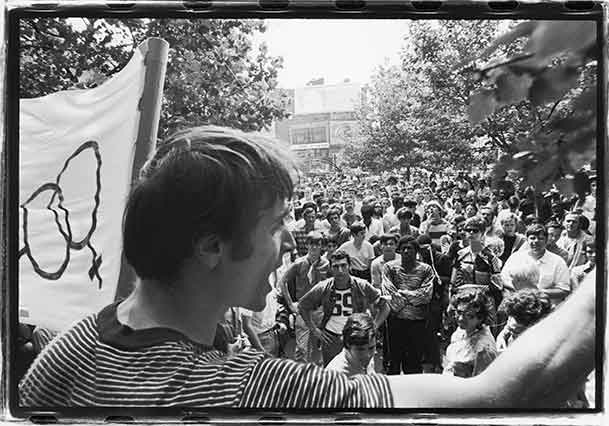
Martin Robinson
Gay activist Marty Robinson, who helped found the Gay Activists Alliance and ACT UP, addressed a rally in front of the Stonewall Inn a month after the uprising. In July 1970, activists marched from Sheridan Square to Central Park for the first “gay-in,” marking the one-year anniversary of the Stonewall uprising.
Image Info: Fred W. McDarrah, July 27, 1969, Courtesy Getty Images.
Objects & Images
Mixed Crowd Outside The Stonewall Inn
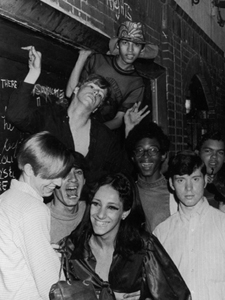
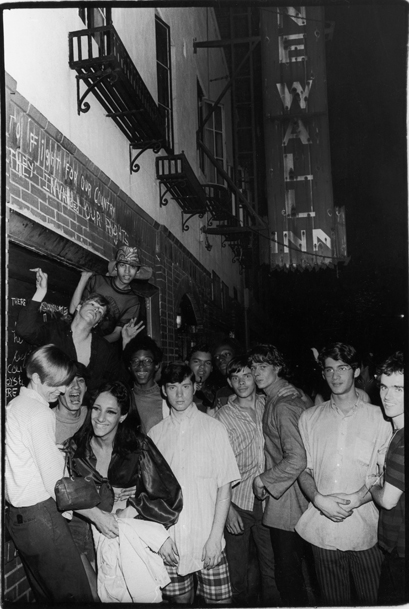
Mixed Crowd Outside The Stonewall Inn
Village Voice photographer Fred W. McDarrah took the only known surviving photographs of the Stonewall uprising on June 28-30, 1969.
Image Info: Fred W. McDarrah, 1969, Courtesy Getty Images.
Mattachine Society Of New York Flyer
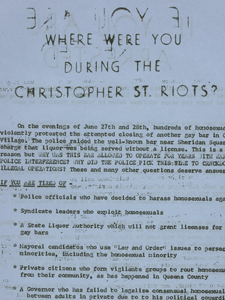
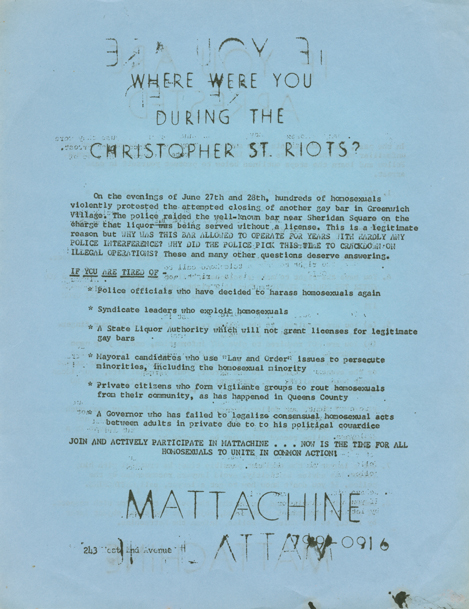
Mattachine Society Of New York Flyer
The Mattachine Society distributed this flyer in the days after the Stonewall uprising. One of the first gay rights organizations, Mattachine was founded in Los Angeles in 1950 and started a New York chapter in 1955. Pre-existing groups used the riot to organize additional actions to demand equal rights for LGBT New Yorkers.
Image Info: 1969, Manuscripts and Archives Division, The New York Public Library, Astor, Lenox and Tilden Foundations.
Flyer, “What Is Gay Liberation Front?”
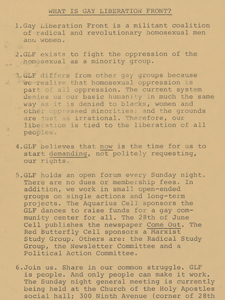

Flyer, “What Is Gay Liberation Front?”
The Gay Liberation Front emerged after the Stonewall uprising in 1969. As a decentralized coalition, the Gay Liberation Front called for sexual liberation and emphasized the connections between gay rights and issues of racism, gender, class, and mobilizing against the Vietnam War.
Image Info: ca. 1970, Courtesy Tamiment Library & Robert F. Wagner Labor Archives, New York University.
Gay Rights Activists Sylvia Rivera, Marsha P. Johnson, Barbara Deming, And Kady Vandeurs At City Hall Rally For Gay Rights
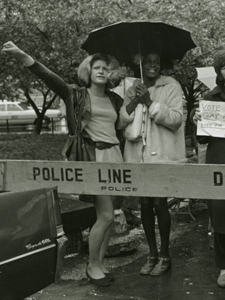

Gay Rights Activists Sylvia Rivera, Marsha P. Johnson, Barbara Deming, And Kady Vandeurs At City Hall Rally For Gay Rights
Beginning in 1971, activists waged a 15-year campaign to pass a citywide ordinance banning discrimination based on sexual orientation. In this photograph, transgender activists Sylvia Rivera and Marsha P. Johnson, shown here on the left, advocate for the ordinance, Intro 475, with lesbian feminist Barbara Deming and other activists. Although an antidiscrimination bill passed in 1986, it lacked protection for transgender people until 2002.
Image Info: Diana Davies, April 1973, Manuscripts and Archives Division, The New York Public Library.
Gay Activists Alliance Flyer
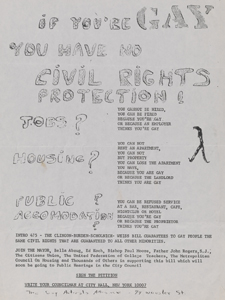

Gay Activists Alliance Flyer
During the 1970s, the city’s LGBT community confronted an array of discriminatory laws and attitudes. The Gay Activists Alliance, which emerged as the dominant gay rights organization in the 1970s, waged a prolonged campaign against sexual orientation discrimination in New York City. While Mayor John V. Lindsay signed an executive order in 1972, a local law banning discrimination on the basis of sexual orientation did not pass until 1986.
Image Info: 1971, Courtesy Tamiment Library & Robert F. Wagner Labor Archives, New York University.
Gay Bob Doll
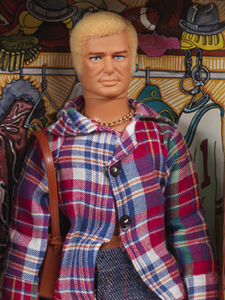

Gay Bob Doll
As the urban gay community became increasingly visible after Stonewall, consumer culture catered to it with merchandise such as the Gay Bob doll. Created by New Yorker Harvey Rosenberg, the doll was packaged in a box meant to resemble a closet from which he could “come out.” The creator used satire to encourage acceptance of gay identity.
Image Info: Designed and made by Harvey Rosenberg, Inc., 1977, Museum of the City of New York, Toy Collection, 93.83A-J.
Rainbow Flag
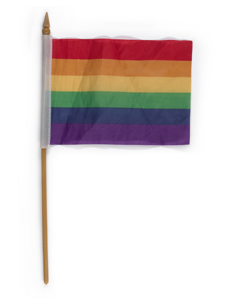

Rainbow Flag
The gay rights movement has embraced a variety of symbols, including the Greek letter lambda, the inverted pink triangle (appropriated from the Nazis, who used a pink triangle to mark homosexual prisoners), and the rainbow flag. New Yorker Gilbert Baker invented the rainbow flag in 1978 as a symbol of hope.
Image Info: Private Collection.
“Planning An Action” Handbook
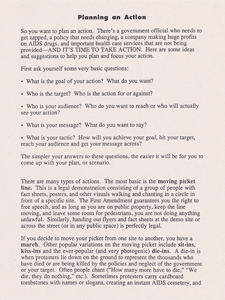

“Planning An Action” Handbook
ACT UP’s handbook instructed AIDS activists on how to confront and “zap” public officials and how to organize picket lines, marches, sit-ins, kiss-ins, and die-ins—“when protesters lie down to represent the thousands who have died or are being killed by the policies and neglect of the government.”
Image Info: 1991, Courtesy ACT UP New York Records, Manuscripts and Archives Division, The New York Public Library, Astor, Lenox and Tilden Foundations.
Gran Fury Artists Collective Poster
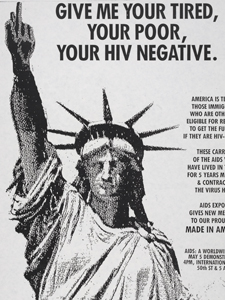
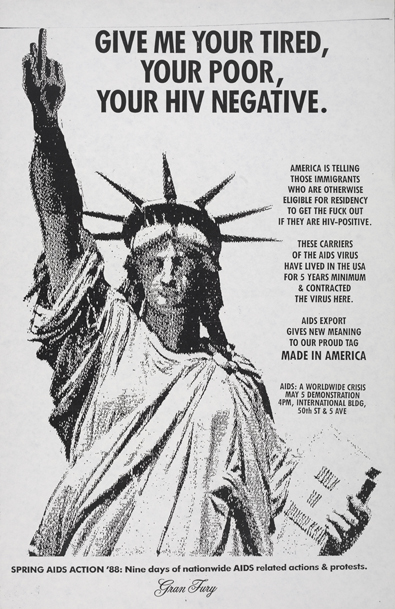
Gran Fury Artists Collective Poster
Artists brought their creative talents to AIDS activism. In 1988, the arts collective Gran Fury was formed as the “agitprop” (agitation propaganda) arm of ACT UP, creating provocative images that garnered attention for their message. The New York-based collective created images such as this one to protest government policies toward HIV-positive residents and immigrants.
Image Info: 1989, Courtesy ACT UP New York Records, Manuscripts and Archives Division, The New York Public Library, Astor, Lenox and Tilden Foundations.
Flyer With Graphic Design By Keith Haring
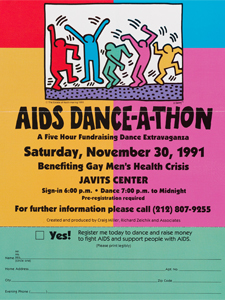

Flyer With Graphic Design By Keith Haring
New York artist Keith Haring created designs used in anti-AIDS campaigns, including the posthumously printed image at the top of this 1991 GMHC dance-a-thon flyer. He also founded the Keith Haring Foundation in 1989 to assist AIDS-related and children’s charities. Haring died of AIDS-related illness in 1990.
Image Info: Gay Men's Health Crisis, 1991, Museum of the City of New York, Mark Ouderkirk Collection, X2011.12.133.
Buttons
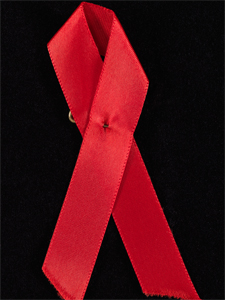
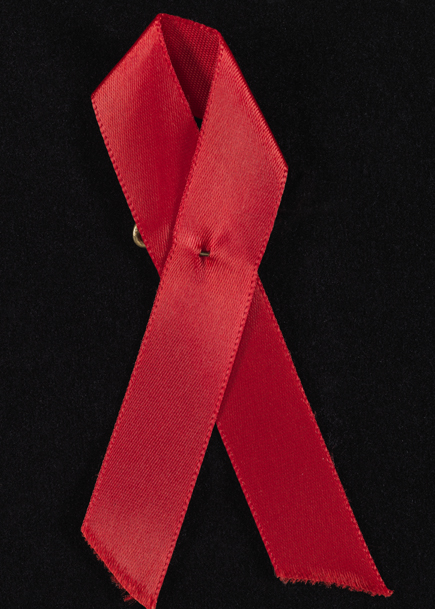
Buttons
Campaigns for safe sex and AIDS awareness education, including the distribution of condoms, became top agenda items for organizations like GMHC during the 1980s and '90s. Wearing an AIDS awareness pin became one way to spread public consciousness of the pandemic, and in the case of the red ribbon, to memorialize the loss of loved ones.
Image Info: 1990s, Museum of the City of New York, Gift of Mark Ouderkirk, X2011.12.137; Gift of Emily Shechtman and Bonnie Yochelson, 99.129.1H, 99.129.1l.
Key Events
| Global | Year | Local |
|---|---|---|
|
Mattachine Society founded; New York chapter opens five years later |
1950 | |
| 1958 |
New York chapter of the California-based Daughters of Bilitis, the first U.S. lesbian rights organization, is founded |
|
| 1966 |
Mattachine Society organizes “sip-in” demonstration to protest against discrimination by the New York State Liquor AuthorityStonewall Uprising lasts three days |
|
|
Stonewall Uprising lasts three days |
1969 |
Gay Liberation Front and Gay Activists Alliance are founded |
| 1970 |
Lavender Menace founded to protest anti-gay sentiment in the mainstream feminist movement; evolves into Radicalesbians First Gay Pride Parade in New York City |
|
| 1972 | Mayor John V. Lindsay issues executive order prohibiting anti-gay discrimination in public sector hiring |
